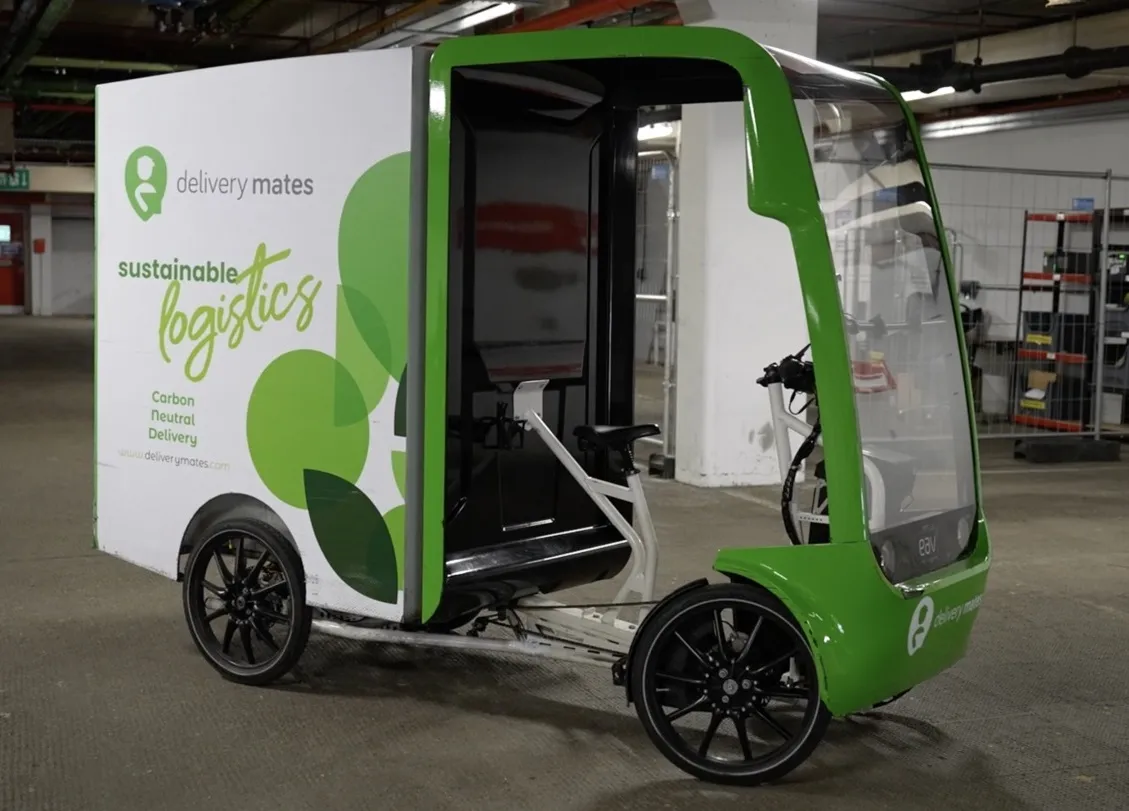
A low-emissions last-mile delivery project in London, UK, has shown promising results at its half-way point.
Westminster City Council and Cross River Partnership (CRP) launched the six-month micro logistics hub trial in Pimlico, central London, in April to support greener last-mile
deliveries in the UK capital.
Supported by Infinium Logistics, the deliveries are carried out by Delivery Mates low-emission couriers: the number of e-cargo bike deliveries from the micro logistics hub had increased by 257% in the third month when compared to the first, with the bikes travelling 6,972 km.
When compared to van deliveries, this is a total emissions reduction of 2,936 kg of CO2; 7,253 g of NOx; and 259 g of PM2.5, says CRP.
Based in the Q-Park Pimlico indoor parking facility, the hub receives parcels from an electric delivery vehicle and then distributes them by electric cargo bikes.
The hub takes up an "under-utilised section" of the car park, with a surface area of 750 sq ft, which is around six parking bays' worth.
Q-Park Pimlico is surrounded by large and wide main roads, which are accessible to larger electric vans (with a 2m height restriction).
Another cargo bike courier already operates from this location, CRP says and Delivery Mates operates five existing hubs in London.
CRP is carrying out a range of trials, including one which delivers packages by foot: the London Light Freight Walking Trial.
It works with the Fitzrovia Partnership, London Borough of Camden, parcel group UPS and retailer Heal’s in the trendy Fitzrovia district of central London
To help with carrying the packages, UPS uses an electric-assisted walker which has been developed by Fernhay.







